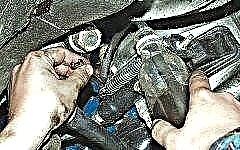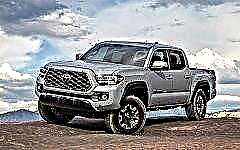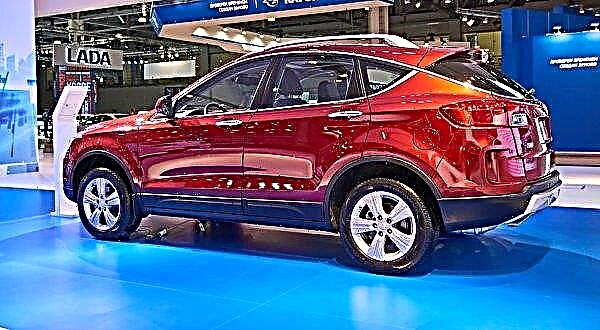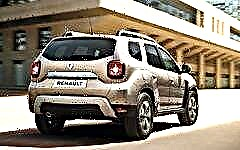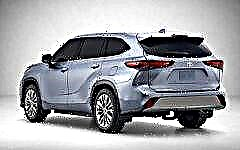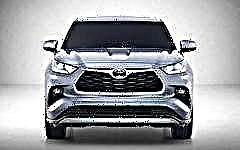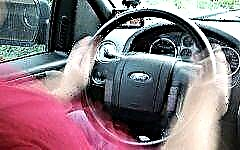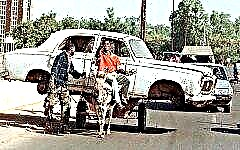

The content of the article:
- Why the car
- Required documents
- Rent a car or own car
- Fuel question
- Such a different Africa!
- Medical recommendations
- Safari
- Features of the national mentality
There are no white spots left in Europe; Asian countries have long earned a reputation as the corners of the world, where they regularly travel for exotic experiences. And only Africa still retains its attractiveness due to its unknown and mysteriousness. A trip to the countries of this continent promises a lot of vivid impressions and discoveries, but it is important to know how to properly prepare for such a trip.
Why the car

With all the variety of tourist routes with excursions to the "Black Continent", a trip by car promises much more pleasant and vivid memories. The reasons for this are obvious. Driving your own car means:
- the opportunity not to rush in the general rhythm of the tourist group, planning and plotting your own route;
- the ability to change the planned route at any time if you come across something interesting on the way;
- the ability to "squeeze" or "stretch" your stay at one point or another on the route, depending on whether you like it or not;
- the ability to travel "with your own company", without outside annoying fellow travelers;
- convenience to organize overnight stays where you want: from hotels to campgrounds and overnight stays by the fire.
Difficulties in a car trip are also present. First of all, this is a burden on the driver, therefore, when going to such an unpredictable place like Africa, it is better to go with a company so that there is someone in the car to change the driver if necessary.
The second point is technical issues. A car can break down, and given the quality of roads on the African continent, this happens regularly. Therefore, at the very beginning of the article, we will make a reservation: a car for traveling in Africa must be of a certain class, better - a full-fledged reliable SUV.
Required documents

Photo: visa in Zimbabwe
Going to the African continent, you should apply for a passport and a six-month open entry visa. The visa must have a minimum of six pages, on which entry and exit into the territory of various countries will be registered. Otherwise, problems may arise, unless, of course, you intend to visit only one selected country.
An international driver's license is required for the driver. You should also take into account the fact that the local police, as a rule, treat white travelers with keen interest, so it is better to keep the license close at hand: during your trip you will be asked to show them more than once.
The car (if you are going to use your own car) must have a registration certificate and insurance.
Rent a car or own car

If you are an inveterate lover of auto travel, nothing prevents you from going to conquer the African continent in your own car. But it is worth repeating: the car must be a reliable SUV, otherwise you risk getting a lot of problems in the first days of the trip.
Again, this method of rest is available only for those who have enough free time and money: after all, you have to get to the ferry to the African coast through a number of European countries where you will need visas.
Ferry connections with the African continent are established in almost every Mediterranean port. The shortest crossing takes no more than an hour. For a one-way car ferry, you will have to pay about 120 euros.
If the situation with free time is not as rosy as we would like, or your own car clearly does not “match” the 4x4 SUV, you can use rented transport.
I must say that, for example, in Cape Town, finding a 4x4 car for rent can be quite a difficult task, but you can agree on the delivery of a car from another region and its delivery at the third point - of course, for an additional amount. On average, renting a car with full camping equipment will cost travelers about USD 130-150 per day.
When signing a lease, pay attention to all the nuances of the text! There may be hidden additional charges that will come as an unpleasant surprise when you return your vehicle.
Fuel question

In the photo: "wild" gas station
Fuel is good in Africa. No fuel is bad. When going on a trip, be sure to stock up on car fuel. There are gas stations in cities, but once you leave these centers of civilization, the number of gas stations drops sharply.
Do not hope that after driving a few more kilometers, you will definitely find a gas station by the road: most likely, you will have to “pull” for a new portion of gasoline to the next more or less large center of civilization.
Such a different Africa!

Photo: panorama of Fez, Morocco
It is also difficult to talk about traveling to Africa because this is a whole continent, which you are unlikely to be able to cover in one trip. Therefore, most likely, you will have to choose some region: West, South or Central Africa.
Everywhere has its own peculiarities and nuances - the African continent is not homogeneous, the states here are quite different from each other both in color and in the level of service that local companies living with tourism are ready to provide to guests of the country.
Morocco is a country that, according to travelers' reviews, refers to African more geographically than in general color: compared to most other African states, this country is more civilized and provides more comfort, services and services to autotourists.
The most popular cities where you can rent a car are:
- Agadir;
- Dakhla;
- Marrakesh;
- Casablanca;
- Tangier;
- Fez.
Rental services are available at every airport. The best solution is to book the car of the required class in advance. By the way, the roads in Morocco are among the best in Africa: if most of the African roads in other states are so-called "dirt roads", then in Morocco most of the roads are perfectly paved.
Car traffic can hardly be called simple: many tracks pass through mountainous terrain, abounding in steep slopes and "serpentines". For this reason, it is better to choose a car with a more powerful engine.
South Africa is a country at the opposite end of the "Black Continent", also more or less distinguished by a normal level of civilization. You can rent a car here using the services of international rental sites - for example, eurocar.com.
There are also certain nuances. For example, a number of companies include a daily mileage limit in the lease agreement. Taking a car, it is worthwhile to study it with great attention for the presence of various dents and scratches, so that you do not have to prove at delivery that it was not you who scratched the body. You should also pay close attention to the imposition of additional services.
South Africa has the most extensive road network on the mainland. Driving here is left-hand, which can be a challenge for a driver accustomed to right-hand driving.
Namibia is a pretty interesting country to travel to. There is a magnificent, though at times harsh nature, excellent views, the opportunity to observe wild animals in their habitat. Probably everyone has heard about the notorious Skeleton Coast - a very atmospheric coast!
In general, the following rule can be attributed to all African countries: as soon as you leave the city limits (moreover, we are talking about large cities), civilization becomes less and less, and wildlife, with all its pros and cons - more and more. That is why it is worth paying attention to the following tips.
Medical recommendations

In the photo: anopheles mosquito
A big problem in many countries of the African continent is infectious diseases, in particular - malaria, Zika virus, sleeping sickness. Mosquitoes carry these serious diseases, so it is better to sleep exclusively under special mosquito nets, especially when it comes to spending the night on an open-air safari.
All travelers must be vaccinated before travel. The list of these vaccinations is different for each country. The standard kit will be the following vaccines:
- against measles;
- against diphtheria and tetanus;
- against polio;
- against smallpox.
If you have already done such vaccinations, be sure to consult with your doctors so that they can tell you if any vaccinations need to be updated.
Most African countries also require a yellow fever vaccine. You may also be asked to get vaccinated against hepatitis A and typhoid fever.
In Kenya, you may be asked to get vaccinated against meningitis, where the disease is quite common. In Uganda, additional care should be taken to vaccinate against rabies and cholera.
In addition to vaccinations, there are other ways to protect yourself from disease, such as taking medications for malaria on a regular basis. This should be started some time before the trip, while on the African continent and some time after returning home. The doctor will guide you in terms of timing, medications and peculiarities of admission.
Be sure to take antibiotics, antipyretics, analgesics with you - all this may be required on the road. If you have any medications left on your return, you can donate them to any hospital - you will be very grateful for any medications: Africa is not a rich continent, and medicine is not doing very well here.
Going “into nature”, take into account the local realities: you cannot drink water from the springs, you should wash your hands at the earliest opportunity and regularly. Unfortunately, unsanitary conditions are abundant in almost all cities, especially in the poorest areas. If you don't want problems, keep your food and clothing clean as carefully as possible.
Safari

Pictured: a tent on the roof of a car in Botswana
Many people go to Africa not for the sake of civilization, but in order to enjoy the wildlife. There are many national parks here, their visit is undoubtedly one of the most vivid impressions of the trip.
But bear in mind the fact that many parks can only be visited in off-road vehicles with a powerful engine. Do not hope that you will "slip through" in an ordinary car: many parks have a "Only 4x4" sign at the entrance, and you can pay a substantial amount of a fine for an attempt to violate this restriction. For those who do "slip through", the local nature prepares surprises in the form of sands, in which it is easy to get bogged down and difficult to leave.
In general, the cost of visiting national parks is "affordable" even with a relatively modest travel budget.
True, there are also curious cases. For example, in Namibia, the government ordered fixed prices "for everything": here you pay the same amount both for admiring seals on the coast for half an hour, and for relaxing in a safari park all day long.
It should be borne in mind that interest in wildlife is literally reciprocal here: you are interested in wildlife, wildlife is interested in you with no less enthusiasm. We have already mentioned that it is better to spend the night and spend evenings under a mosquito net. A few more words about spending the night in the open air.
A distinctive feature of the car "camping equipment" in African style is a tent, which is laid out on the roof of the car in order to avoid excessive contact with nocturnal animals, in particular - insects and reptiles, among which there are quite a few poisonous ones.
It is better to practice setting up such a tent in advance so that you do not get into a mess: near the equator, the night falls almost instantly, and in the dark it is a dubious pleasure to put up a tent on the roof of a car without experience.
Also, do not forget that "hot Africa" is a kind of stereotype. It can get pretty cold in the desert at night, so don't count on the constant resort temperatures!
Features of the national mentality

In the photo: national dance, Sahara
And in conclusion, a few words about the peculiarities of communication with the local population. Africa is a poor continent; white travelers are often treated here exclusively as a source of money. Do not indulge in begging.
If you want to photograph locals or any cult sights - find out if this is not contrary to local religious norms.
Also keep in mind that in many countries there is an unstable political situation, outbreaks of civil disobedience, civil wars are frequent. Before setting off on the road, clarify these points so as not to get into an unpleasant situation.
Conclusion
A trip to the African continent is not an easy matter; such a trip should be decided only if you already have some experience behind you. But if you do decide to take a ride on the roads of the "Black Continent", follow the simple rules, be moderately careful, attentive, and you will certainly be rewarded with an unforgettable experience. Happy safari!

